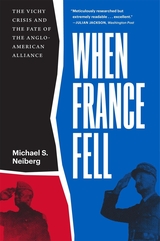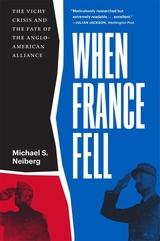
Andrew Mumford challenges the notion of a “special relationship” between the United States and United Kingdom in diplomatic and military affairs, the most vaunted and, he says, exaggerated of associations in the post-1945 era. Though they are allies to be sure, national self-interest and domestic politics have often undercut their relationship.
This is the first book to combine a history of US-UK interaction during major counterinsurgency campaigns since 1945, from Palestine to Iraq and Afghanistan, with a critical examination of the so called special relationship that has been tested during these difficult, protracted, and costly conflicts. Mumford’s assessment of each nation’s internal political discussions and diplomatic exchanges reveals that in actuality there is only a thin layer of specialness at work in the wars that shaped the postcolonial balance of power, the fight against Communism in the Cold War, and the twenty-first-century “war on terror.” This book is especially timely given that the US-UK relationship is once again under scrutiny because of the Trump administration’s “America First” rhetoric and Britain's changing international relations as a result of Brexit. Counterinsurgency Wars and the Anglo-American Alliance will interest scholars and students of history, international relations, and security studies as well as policy practitioners in the field.

Winner of the Society for Military History’s Distinguished Book Award
Shocked by the fall of France in 1940, panicked US leaders rushed to back the Vichy government—a fateful decision that nearly destroyed the Anglo–American alliance.
According to US Secretary of War Henry Stimson, the “most shocking single event” of World War II was not the Japanese attack on Pearl Harbor, but rather the fall of France in spring 1940. Michael Neiberg offers a dramatic history of the American response—a policy marked by panic and moral ineptitude, which placed the United States in league with fascism and nearly ruined the alliance with Britain.
The successful Nazi invasion of France destabilized American planners’ strategic assumptions. At home, the result was huge increases in defense spending, the advent of peacetime military conscription, and domestic spying to weed out potential fifth columnists. Abroad, the United States decided to work with Vichy France despite its pro-Nazi tendencies. The US–Vichy partnership, intended to buy time and temper the flames of war in Europe, severely strained Anglo–American relations. American leaders naively believed that they could woo men like Philippe Pétain, preventing France from becoming a formal German ally. The British, however, understood that Vichy was subservient to Nazi Germany and instead supported resistance figures such as Charles de Gaulle. After the war, the choice to back Vichy tainted US–French relations for decades.
Our collective memory of World War II as a period of American strength overlooks the desperation and faulty decision making that drove US policy from 1940 to 1943. Tracing the key diplomatic and strategic moves of these formative years, When France Fell gives us a more nuanced and complete understanding of the war and of the global position the United States would occupy afterward.

Winner of the Society for Military History’s Distinguished Book Award
“Deeply researched and forcefully written . . . deftly explains the confused politics and diplomacy that bedeviled the war against the Nazis.”—Wall Street Journal
“Neiberg is one of the very best historians on wartime France, and his approach to the fall of France and its consequences is truly original and perceptive as well as superbly written.”—Antony Beevor, author of The Second World War
“An utterly gripping account, the best to date, of relations within the turbulent triumvirate of France, Britain, and America in the Second World War.”—Andrew Roberts, author of Churchill: Walking with Destiny
The “most shocking single event” of World War II, according to US Secretary of War Henry Stimson, was not the Japanese attack on Pearl Harbor but the fall of France in the spring of 1940. The Nazi invasion of France destabilized Washington’s strategic assumptions, resulting in hasty and desperate decision-making. Michael Neiberg offers a dramatic history of America’s bewildering response—policies that placed the United States in league with fascism and nearly ruined its alliance with Britain.
FDR and his advisors naively believed they could woo Vichy France’s decorated wartime leader, Marshal Philippe Pétain, and prevent the country from becoming a formal German ally. The British, convinced that the Vichy government was fully subservient to Nazi Germany, chose to back Charles de Gaulle and actively financed and supported the Resistance. After the war, America’s decision to work with the Vichy regime cast a pall over US-French relations that lasted for decades.
READERS
Browse our collection.
PUBLISHERS
See BiblioVault's publisher services.
STUDENT SERVICES
Files for college accessibility offices.
UChicago Accessibility Resources
home | accessibility | search | about | contact us
BiblioVault ® 2001 - 2024
The University of Chicago Press









